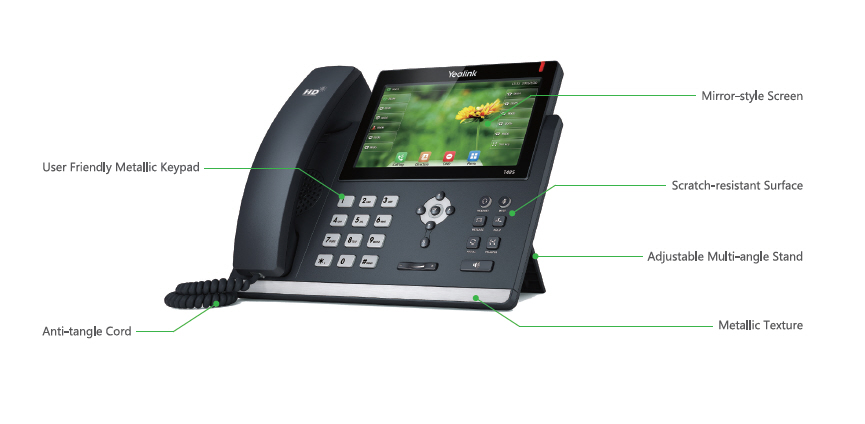In today's fast-paced business environment, effective communication is vital for success. Companies often find themselves torn between traditional Private Branch Exchange (PBX) systems and newer Voice over Internet Protocol (VoIP) technologies. With budgets tightening and the demand for flexibility increasing, it's crucial to understand which system will serve your http://claytonzfwz071.huicopper.com/what-makes-a-great-customer-experience-the-role-of-quality-voice-calls needs best without breaking the bank. In this article, we will explore PBX vs. VoIP: which communication system fits your budget? We'll dive deep into both options, analyzing their features, costs, advantages, and disadvantages.
Understanding PBX Systems
What Is a PBX System?
A Private Branch Exchange (PBX) is a private telephone network used within an organization. Users share a certain number of outside lines for making external phone calls. The PBX manages incoming and outgoing calls and can connect internal extensions to each other.
Types of PBX Systems
There are primarily three types of PBX systems:
Traditional PBX: This is a hardware-based system that requires physical installation on-site. IP PBX: This uses internet protocol to manage calls but still requires hardware. Hosted PBX: A cloud-based solution managed by a third-party provider.Each type comes with its unique set of features and pricing structures.

Benefits of Traditional PBX Systems
- Reliability: Traditional PBXs are known for their robustness. Control: Organizations have complete control over their telephony infrastructure.
Drawbacks of Traditional PBX Systems
- High Initial Costs: Installation and maintenance can be expensive. Limited Scalability: Adding new lines often requires additional hardware.
Exploring VoIP Phone Systems
What Is VoIP?
Voice over Internet Protocol (VoIP) allows users to make voice calls using an internet connection instead of traditional phone lines. This technology has revolutionized the way businesses communicate.
How Does VoIP Work?
VoIP converts voice signals into digital data packets that are sent over the internet. These packets travel through various networks before reaching their destination where they are converted back into voice signals.
Advantages of VoIP Phone Systems
- Cost-Effective: Lower monthly fees compared to traditional systems. Flexibility: Easily scalable; add or remove users as needed.
Disadvantages of VoIP Phone Systems
- Internet Dependence: Requires a stable internet connection. Quality Issues: Call quality can suffer during peak usage times.
Comparing Costs: PBX vs. VoIP
Initial Investment Costs
When comparing the two systems, initial investment plays a significant role in decision-making.
Traditional PBX Costs
Hardware purchase Installation fees Maintenance costsVoIP Costs
Minimal hardware requirements Subscription-based service fees No installation costsMonthly Operating Costs
After installation, ongoing operating expenses differ significantly.
PBX Monthly Fees
Typically higher due to maintenance and line charges.
VoIP Monthly Fees
Generally lower; many providers offer flat-rate plans or pay-per-use models.
Analyzing Features and Functionality
Core Features of PBX Systems
Call routing Voicemail Conference callingCore Features of VoIP Phone Systems
Call forwarding Video conferencing Mobile integrationBoth systems offer useful features, but their implementations may vary significantly based on technology.
Scalability in Business Communications
Scalability with Traditional PBX Systems
Scaling up usually involves purchasing additional hardware, leading to increased costs and downtime during installation.
Scalability with VoIP Phone Systems
VoIP systems are inherently more scalable since they typically allow you to add new users through simple online interfaces or mobile apps without needing extensive installation processes or downtime.
Maintenance Considerations for Each System
Maintenance Needs for Traditional PBX Systems
Regular maintenance is required to ensure optimal performance, often necessitating technical expertise on-site.
Maintenance Needs for VoIP Phone Systems
Most maintenance tasks can be handled remotely by the service provider, reducing the need for in-house expertise.
Security Aspects in Communication Technologies
Security Challenges for Traditional PBX Systems
While generally robust against standard cyber threats, traditional systems can still be vulnerable if not properly maintained or updated frequently.
Security Challenges for VoIP Phone Systems
VoIP systems face different security challenges due to their reliance on internet connectivity, making them susceptible to hacking and other cyber threats if adequate safeguards aren’t in place.
User Experience & Support Options
User Experience with Traditional PBX
Users may benefit from straightforward interfaces but could face limitations regarding advanced functionalities like video conferencing or mobile integration.
User Experience with VoIP Phone Systems
Modern interfaces offer enhanced user experiences with rich functionalities like mobile applications that allow remote work seamlessly.
Integration Capabilities with Other Tools
Integrating Traditional PBX with Modern Software Solutions
Integration may require custom solutions or additional software layers that complicate workflows or incur extra costs.

Integrating VoIP Phone Systems with Business Applications
With easy API access, many VoIP providers enable seamless integration with CRM tools and customer support platforms.
Frequently Asked Questions About Communication Solutions
What’s the primary difference between traditional PBX and VoIP?- While traditional PBXs use physical lines for communication, VoIPs utilize internet connections.
- Both have security risks; however, effective measures can mitigate risks in both types.
- Yes! Most providers allow number porting from traditional systems to new ones.
- Traditional systems may continue working; however, backup generators might be needed while most hosted VoIPs require stable internet access.
- Absolutely! Many providers offer mobile apps that turn smartphones into full-fledged business phones.
- Assess your specific needs such as budget constraints, scalability requirements, and preferred features.
Conclusion: Making the Right Choice
In conclusion, whether you opt for a traditional Private Branch Exchange (PBX) system or shift towards modern Voice over Internet Protocol (VoIP) technology depends largely on your organization's needs—both present and future—and budget considerations.
Ultimately understanding “PBX vs. VoIP: Which Communication System Fits Your Budget?” enables you to strategize effectively while ensuring seamless communication within your team while also controlling costs efficiently!
By weighing the pros and cons outlined herein along with identifying your priorities—be it cost savings scalability flexibility or integration capabilities—you’re now better equipped to make an informed decision tailored specifically towards enhancing productivity within your organization!
This article provides comprehensive insights into choosing between these two prominent communication options while focusing explicitly upon financial aspects alongside operational efficiencies all designed specifically around helping readers navigate these complex decisions effortlessly!